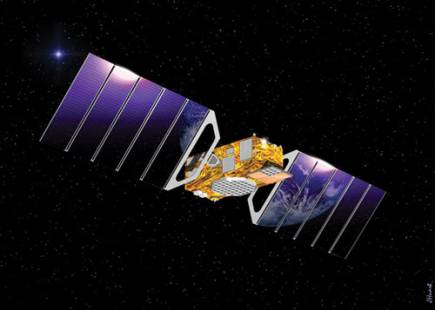With the signature of further contracts for satellites and launchers in London today, Galileo is firmly on track for the provision of improved satellite navigation services to citizens in 2014.
In total, 3 contracts were signed: the contract signed with OHB System AG (DE) comprising 8 satellites for an amount in the order of EUR 250 million. A second contract was signed with Arianespace (FR) for a booking option of up to 3 launches using Ariane 5 (booking fee of EUR 30 million). A third contract was signed with Astrium SAS (FR) to enable the current Ariane 5 launcher to carry 4 Galileo programme satellites per launch into orbit, for an amount in the order of EUR 30 million.
Galileo satellites are currently launched in pairs aboard the Russian Soyuz rocket. Thanks to the highly competitive proposal of the contractor and increasing the number of satellites which will be launched in orbit by 2014, the Commission has been able to accelerate the process.
Antonio Tajani, European Commission Vice-President, responsible for industry and entrepreneurship said: “For Galileo, today’s signing signifies the concrete roll-out of the programme is on time and within budget. I am proud that we could manage to speed up the delivery of satellites and launchers. This means that Europeans will be able to exploit the opportunities of enhanced satellite navigation provided by Galileo in 2014. I am also proud to see that Europe has a highly competitive space industry capable of realising such an ambitious high tech programme.”
Galileo Navigation system
Galileo will allow users to know their exact position in time and space, just like GPS, but with greater precision and reliability. Under European civilian control, Galileo will be compatible and, for some of its services, interoperable with the American GPS and Glonass (Russia), but independent from them.
Galileo will underpin many sectors of the European economy through its services: electricity grids, fleet management companies, financial transactions, shipping industry, rescue operations, peace-keeping missions will all benefit from the free Galileo services.
The 8 satellites ordered today will join the 18 satellites already contracted, of which 2 are in orbit since October 21st 2011, bringing to 26 the number of satellites by end 2015. A second launch of a further 2 Galileo satellites will take place later this year.
The Galileo programme has been structured in two phases:
- The in-orbit validation (IOV) phase consists of tests and the operation of four satellites and their related ground infrastructure. This phase is ongoing.
- The full operational capability (FOC) phase consists of the deployment of the remaining ground and space infrastructure. It includes an initial operational capability phase of 18 operational satellites. The full system will consist of 30 satellites in orbit, as well as 2 satellites on the ground to replace ones in orbit if necessary, and include control centres located in Europe and a network of sensor stations and uplink stations installed around the globe.
Background on procurement of Galileo components
Today’s contracts were signed by the European Space Agency on behalf of the European Commission.
The procurement of services essential for Galileo’s full operational capability is divided into six contracts. In January 2010, three contracts were awarded to ensure system engineering support, satellites and launchers (IP/10/7). A fourth contract was signed in Brussels in October 2010 with SpaceOpal for operating the space and ground infrastructure (IP/10/1382). In June 2011 (IP/11/772) the final two remaining contracts were signed with ThalesAlenia (FR) for the ground mission infrastructure and Astrium (UK) for the ground control infrastructure.
The process kicked off in July 2008 by the European Space Agency, under delegation from the European Commission. Short-listed companies were invited to submit best and final offers following a comprehensive dialogue phase. All contracts are awarded on the basis of “best value for money”.
Satellites
A framework contract signed with both OHB System AG and EADS-Astrium GmBH lasting from 2010 until 2016 covers the supply of up to 32 satellites. A specific contract for a first order of 14 satellites was awarded to OHB in 2010, with the provision of the first satellite in 2012. One satellite is expected every 1.5 month as of then, with the last one scheduled to be delivered in 2014.
Launch services
In 2010, a contract was awarded to Arianespace for the launch of five Soyuz launchers from Kourou, French Guiana, each taking two satellites on board. The contract also contains options for additional Soyuz launches (carrying two satellites) and Ariane 5 launches (carrying four satellites).
Today’s contract with Astrium SAS (FR) procures the technical adaptation of the typical Ariane 5 launcher to the specific needs of the Galileo satellites. The adaptation introduces the possibility of 4 satellites per launch, thereby speeding up the deployment of the constellation.










